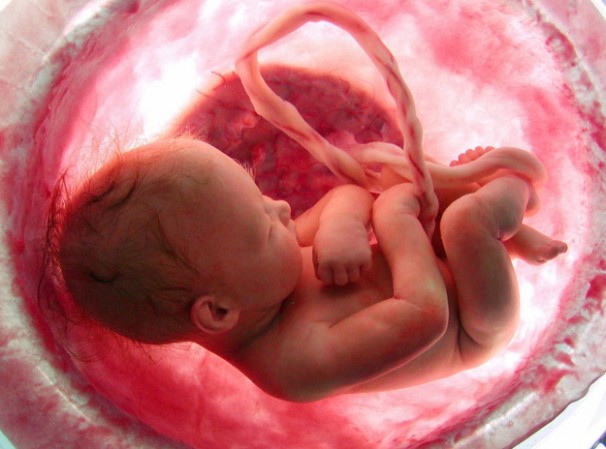In a victory for unborn children, the Ohio Supreme Court issued a ruling today rejecting a request from abortion businesses to block the state’s heartbeat law that bans abortions when an unborn child’s hearbeat can be detected.
Ohio abortion business filed suit in state court seeking to overturn the newly-minted heartbeat law that has begun saving babies from abortions following the Supreme Court decision to overturn Roe v. Wade.
After the decision, Ohio Governor Mike DeWine issued an executive order directing the Ohio Department of Health to adopt emergency rules implementing Ohio’s Heartbeat Law. This Executive Order was in response to the federal court lifting the injunction on Ohio’s Heartbeat Law. Attorney General Dave Yost filed a legal request to lift the injunction due to the United States Supreme Court ruling in the Dobbs v Jackson Women’s Health Organization case.
With the Ohio Supreme Court’s decision rejecting the pro-abortion request for an injunction, this means abortions are now banned in Ohio starting at 6 weeks, when an unborn baby’s heartbeat can be detected.
Michael Gonidakis, president of Ohio Right to Life, told LifeNews after the ruling that he’s delighted by the news.
“The Ohio Supreme Court got it right. What the abortion proponents attempted to do could not be done legally. The good news is that the Heartbeat law will remain in effect and save countless lives today and moving forward,” he said. “Instead of filing frivolous motions, the abortion industry should consider working with Ohio Right to Life to help women and save unborn children in the great state of Ohio.”
Follow LifeNews on the Parler social media network for the latest pro-life news!
Preterm-Cleveland, Planned Parenthood Greater Ohio and other abortion businesses were behind the lawsuit. In addition to Preterm and Planned Parenthood, plaintiffs include Planned Parenthood Southwest Ohio, Women’s Med Group Professional Corp. in Dayton, Northeast Ohio Women’s Center, Toledo Women’s Center and Dr. Sharon Liner, an individual abortionist.
The lawsuit specifically argues the Ohio Constitution’s due process rights under the Due Course of Law Clause protects women’s reproductive autonomy and bodily integrity. The heartbeat law discriminates against women, in violation of the Equal Protection and Benefit Clause, the lawsuit claims.
Leading pro-life groups were elated by the news when the heartbeat law was enacted.
“The Heartbeat Law has been sitting on the sidelines in federal court which could have saved countless lives over the past several years. Starting right now no baby with a beating heart can be aborted in the state of Ohio,” said Ohio Right to Life President Mike Gonidakis. “We are grateful that our Attorney General Dave Yost acted swiftly and got the injunction lifted.”
Director of Communications Elizabeth Whitmarsh stated, “Many would have been lackadaisical on this, but because we elected strong pro-life leaders, thousands of lives are protected from abortion starting this very moment. Our Attorney General and Governor saw an opportunity to save lives and they immediately got it done. This is true leadership and should be a model for the how we move forward.”
Mark Harrington of Created Equal added: “Today is a historic day. Not only is Roe dead, but no longer can the beating hearts of humans too young to be born be violently torn apart by abortion in Ohio. The Heartbeat Law can now potentially save dozens of children from being killed by abortion each day. Ohio is on the way to completely ban abortion and protect every human life.”
As LifeNews reported, the Supreme Court has overturned Roe v. Wade, with a 6-3 majority ruling in the Dobbs case that “The Constitution does not confer a right to abortion” — allowing states to ban abortions and protect unborn babies. The high court also ruled 6-3 uphold the Mississippi 15-week abortion ban so states can further limit abortions and to get rid of the false viability standard.
Chief Justice John Roberts technically voted for the judgment but, in his concurring opinion, disagreed with the reasoning and said he wanted to keep abortions legal but with a new standard.
Texas and Oklahoma had banned abortions before Roe was overturned and Missouri became the first state after Roe to protect babies from abortions and South Dakota became the 2nd. Then Arkansas became the third state protecting babies from abortions and Kentucky became the 4th and Louisiana became the 5th and Ohio became the 6th and Utah became the 7th and Oklahoma became the 8th and Alabama became the 9th. This week, Mississippi became the 10th and South Carolina became the 11th,Texas became the 12th with its pre-Roe law and Tennessee became the 13th.
Michigan, Wisconsin and West Virginia have old pro-life laws on the books but there is question about whether they are applicable and will be enforced.
Ultimately, as many as 26 states could immediately or quickly ban abortions and protect babies from certain death for the first time in nearly 50 years.
The 13 total states with trigger laws that would effectively ban all or most abortions are: Arkansas, Idaho, Kentucky, Louisiana, Missouri, Mississippi, North Dakota, Oklahoma, South Dakota, Tennessee, Texas, Utah and Wyoming.
“Abortion presents a profound moral question. The Constitution does not prohibit the citizens of each State from regulating or prohibiting abortion. Roe and Casey arrogated that authority. We now overrule those decisions and return that authority to the people and their elected representatives,” Alito wrote.
“Roe was egregiously wrong from the start. Its reasoning was exceptionally weak, and the decision has had damaging consequences,” Alito wrote. “And far from bringing about a national settlement of the abortion issue, Roe and Casey have enflamed debate and deepened division.”
This is a landmark day for the Pro-Life movement and our entire nation. After staining the moral fabric of our country for nearly 50 years, Roe v. Wade is no more.
Justices Sonia Sotomayor, Elena Kagan and Stephen Breyer authored a joint dissent condemning the decision as enabling states to enact “draconian” restrictions on women.
Polls show Americans are pro-life on abortion.








